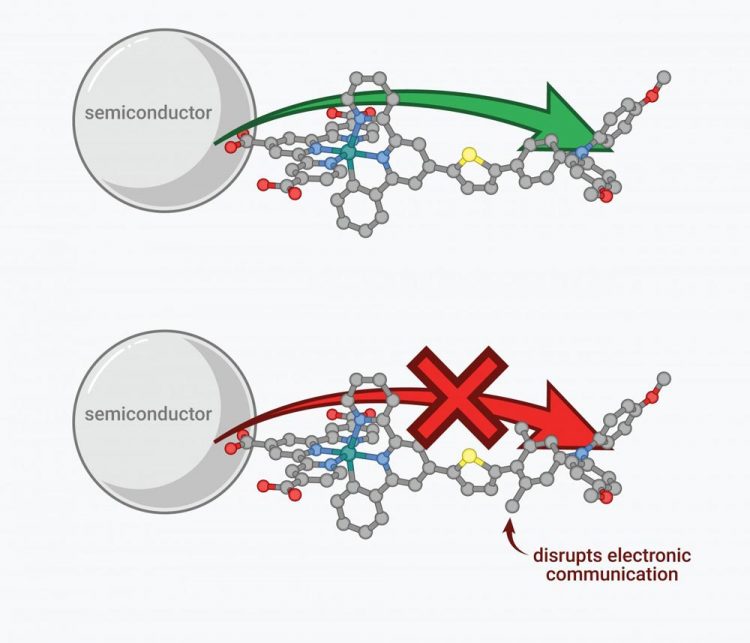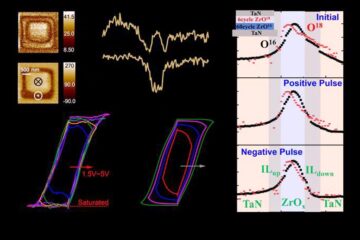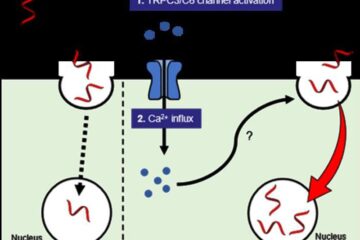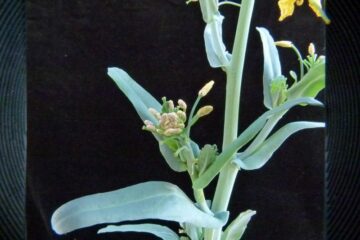Researchers find better way to 'herd' electrons in solar fuel devices

Molecules can be designed to act as a gate and keep electrons moving forward in one direction. Credit: UBC Chemistry
The finding, published today in Nature Chemistry, could have a big impact on devices that convert sunlight into electricity and fuel.
Researchers have already shown that the efficiency of electron transfer at semi-conductor interfaces depends on the distance the electron has to travel. The new finding shows that the efficiency of the transfer also depends on the type of chemical bonds–or the bridge–that the electron travels through along the way.
“Now we can design molecules to act as a gate and keep electrons moving forward in one direction and not reverse their direction,” says UBC chemist and chemical engineer Curtis Berlinguette, senior author on the paper.
“If electrons go in the wrong direction, we lose much of the sun's energy as heat before it can be converted into electricity or fuel.”
The research also has ramifications in how we view electron transfer in biological systems.
Media Contact
All latest news from the category: Materials Sciences
Materials management deals with the research, development, manufacturing and processing of raw and industrial materials. Key aspects here are biological and medical issues, which play an increasingly important role in this field.
innovations-report offers in-depth articles related to the development and application of materials and the structure and properties of new materials.
Newest articles

Evidence for reversible oxygen ion movement during electrical pulsing
…enabler of the emerging ferroelectricity in binary oxides. In a recent study published in Materials Futures, researchers have uncovered a pivotal mechanism driving the emergence of ferroelectricity in binary oxides….

Next-generation treatments hitch a ride into cancer cells
Researchers from Osaka University discover that opening a channel into cancer cells helps antisense oligonucleotide drugs reach their targets. Antisense oligonucleotides (ASOs) are next-generation drugs that can treat disease by…

Boron deficiency: oilseed rape reacts as with infection and pest infestation
Genetic mechanisms uncovered… Boron deficiency has a devastating effect on oilseed rape and related plants. However, little is known about the underlying genetic mechanisms. A study shows that the response…





















